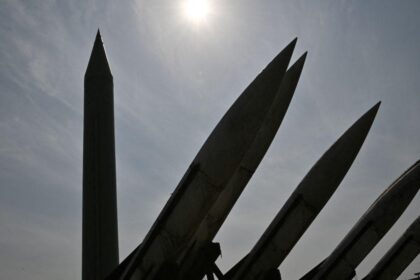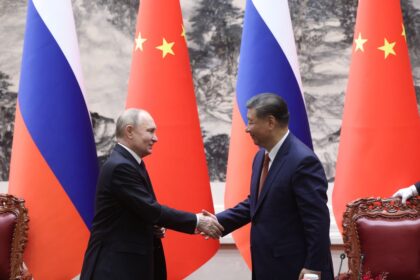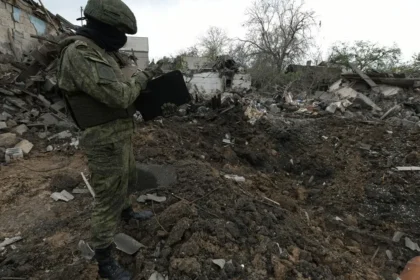**Lithuania Boosts Defense Spending to Counter Russian Threat**
In a bid to strengthen its defenses against potential aggression from Russia and Belarus, Lithuania has announced plans to invest 1.1 billion euros ($1.2 billion) over the next decade. The funding will be used to upgrade border security along its eastern flank, where it shares borders with Russia’s Kaliningrad exclave and Belarus.
The move comes amid escalating tensions between NATO and Moscow since the invasion of Ukraine. Lithuania’s Defense Ministry has stated that the initiative aims to “block and slow” a possible invasion, highlighting the country’s determination to prioritize national security. The majority of the funds – approximately 800 million euros ($905 million) – will be allocated for the acquisition and installation of anti-tank mines along its eastern border.
**A Strategic Move to Protect NATO’s Eastern Flank**
Lithuania has identified the Suwalki Corridor, a strategic stretch connecting it to Poland, as a key area to defend. This corridor is considered vital for NATO’s eastern flank, and Western intelligence agencies have warned of a potential large-scale war in Europe within the next five years due to Russia’s increasingly aggressive posture.
In January, Lithuania announced plans to increase its defense spending to between 5% and 6% of GDP annually from 2026 to 2030, citing the threat of Russian aggression. The decision to invest heavily in border security is seen as a strategic move to protect NATO’s eastern flank and deter potential aggression from Russia.
**Reaction from Moscow**
Moscow has reacted sharply to Lithuania’s moves, with Russian Foreign Intelligence Service (SVR) Director Sergey Naryshkin warning on April 15 that Poland and the Baltic states would be the “first to suffer” in a direct NATO-Russia conflict. This reaction highlights the tense atmosphere between Russia and its Western neighbors.
In March, Lithuania, Estonia, Latvia, and Poland declared their intent to withdraw from the Ottawa Convention, an international treaty banning anti-personnel mines. The move was seen as a significant step towards bolstering defense capabilities against potential threats.
**A Step Towards Greater Defense Cooperation**
Lithuania’s decision to invest heavily in border security is likely to boost defense cooperation with its regional allies, including Poland and the Baltic states. The shared threat of Russian aggression has brought these countries closer together, and their joint efforts to strengthen defense capabilities are a testament to this growing alliance.
In conclusion, Lithuania’s investment in border security and defense spending reflects the country’s commitment to protecting itself against potential threats from Russia and Belarus. As tensions between NATO and Moscow continue to escalate, Lithuania’s strategic move is likely to be closely watched by regional leaders and Western policymakers alike.












